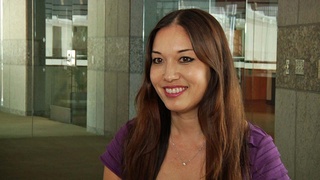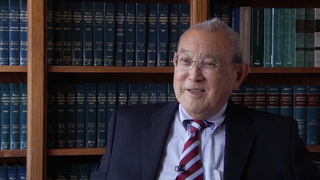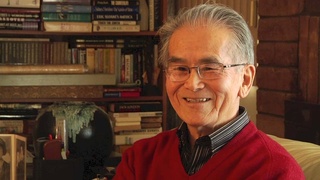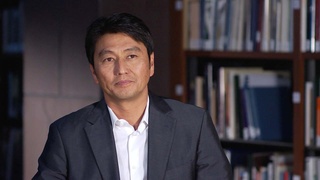Entrevistas
Being enlisted into the Japanese Army
In these days, the army will send a representative to various high school, or schools, or group and then they’ll come to school and say, I want ten people from this age group, I want you to offer ten people and then – army - there’s another navy people comes in and hey the navy says, I want fifteen, twenty people, whatever. So when you get the order, the teacher, they’ll call – individually - and I was called to teacher - ne~ Suto - looking at my grade - well, you’re going to have a tough time, getting into college, number one, and then number two – financially. of course if I really wanted to go college, perhaps if I asked my uncle for support, I probably got my…you know, he’ll probably just say, okay go ahead. But I know, financially, for myself I wouldn’t be able to go - college. In Japan, there’s no such thing as a student loan.
So I had a choice, and then - teacher will tell you that they all want you to go to take a test of this army or whatever the case may be, and then with a few other people we go together - they take a test on certain days – we all go. No questions asked - it’s really not, it’s not forced into it, but to me, at the time when I was asked, there were no questions asked, yes, I just have to go to honor that request. My teacher’s request - because if the teacher does not produce the ten people, he’s in trouble, yeah. Now how much, I don’t know, but he will. He’ll come back, and then turn around and get somebody else, or do something…so knowing that, and I says, okay - go so, ten of us or twelve of us went and take the examination.
Fecha: June 17, 2008
Zona: California, US
Entrevista: Janice Tanaka
País: Watase Media Arts Center, Japanese American National Museum









